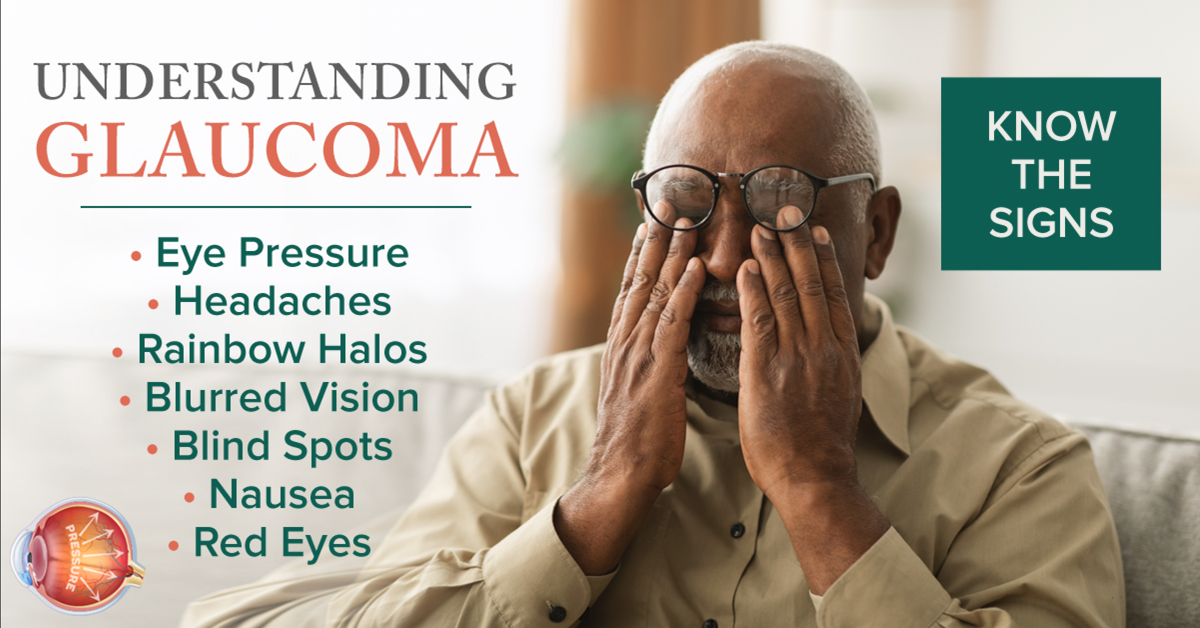Your mom seems to have trouble focusing while reading or watching her favorite television program.
Does she simply need new glasses or could it be something more serious?
According to the Centers for Disease Control and Prevention, nearly 3 million Americans have some form of glaucoma – a group of diseases that damage the eye’s optic nerve. When left untreated, it can cause vision loss and even blindness.
The most common type, open-angle glaucoma, results in increased eye pressure and accounts for more than 90% of all cases. With this type, there are often no early symptoms, which is why 50% of people with glaucoma don’t know they have the disease. As the condition worsens, people may notice:
- Eye pain or pressure
- Headaches
- Rainbow-colored halos around lights
- Blurred vision, tunnel vision or blind spots
- Nausea and vomiting
- Red eyes
The risk of developing glaucoma increases with age – particularly after the age of 60. While glaucoma cannot be completely prevented, there are things seniors and their families can do to reduce their risk and manage the condition.
- Regular eye exams. Annual eye exams are crucial for early detection and intervention.
- Know your family history. Be aware of any family history of glaucoma allows for proactive monitoring and preventive measures.
- Maintain a healthy lifestyle. Eat a balanced diet, exercise regularly and manage underlying health conditions.
- Adhere to medication. If eye drops or other medications are prescribed, take them as directed by your eye doctor.
- Protect your eyes. Wear protective eyewear during activities that could cause eye injuries.
- Quit smoking. Smoking has been linked to an increased risk of glaucoma. If you don’t smoke, don’t start. If you do, quit.
- In some cases, eye doctors may recommend surgery to allow the eye to drain fluid properly.
Understanding glaucoma is the first step to preserving your senior’s sight and the ability to live independently for as long possible. To learn more, talk to your family physician or an eye professional.
Information and resources are also available through the National Eye Institute, the American Academy of Ophthalmology and the Glaucoma Research Foundation.
